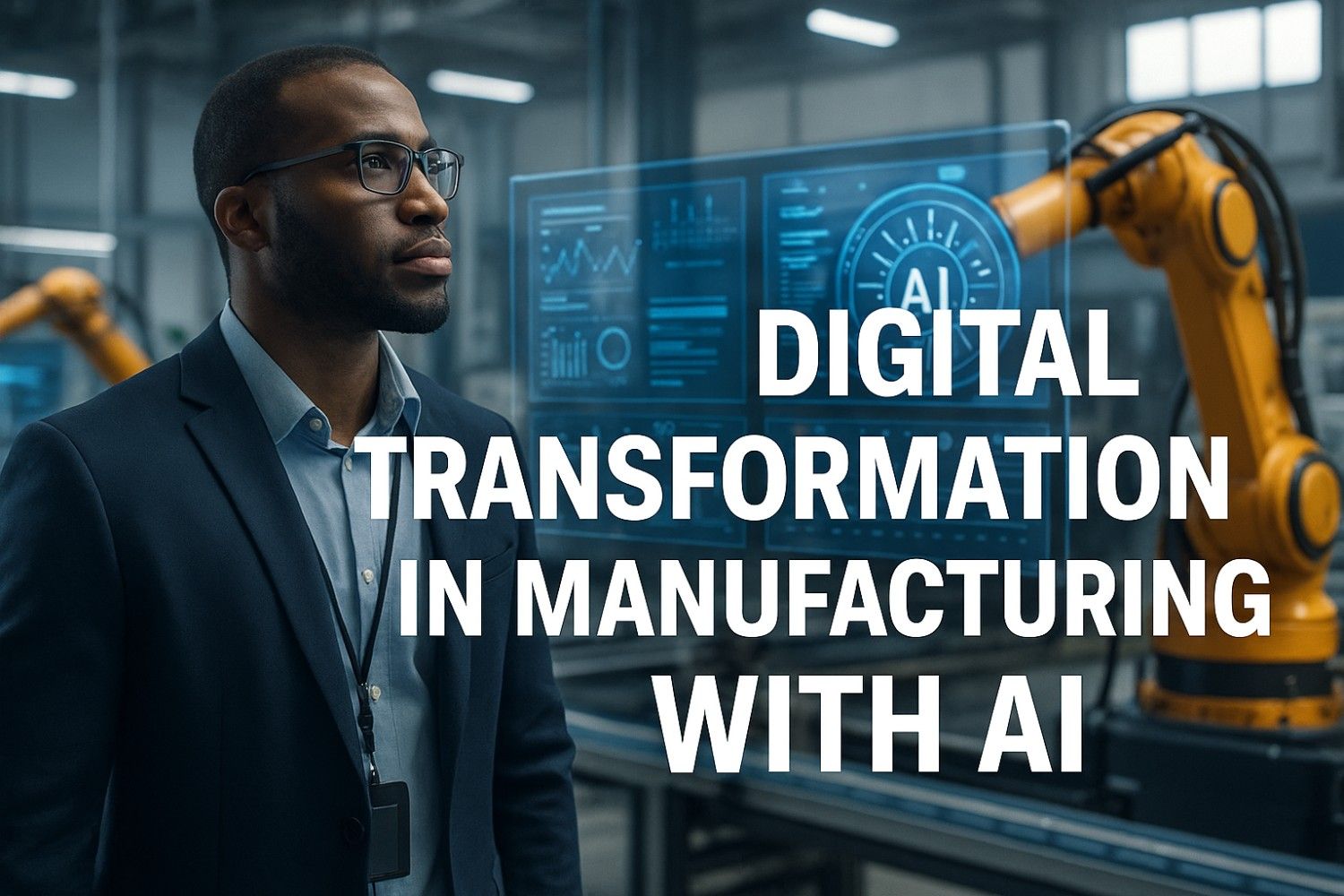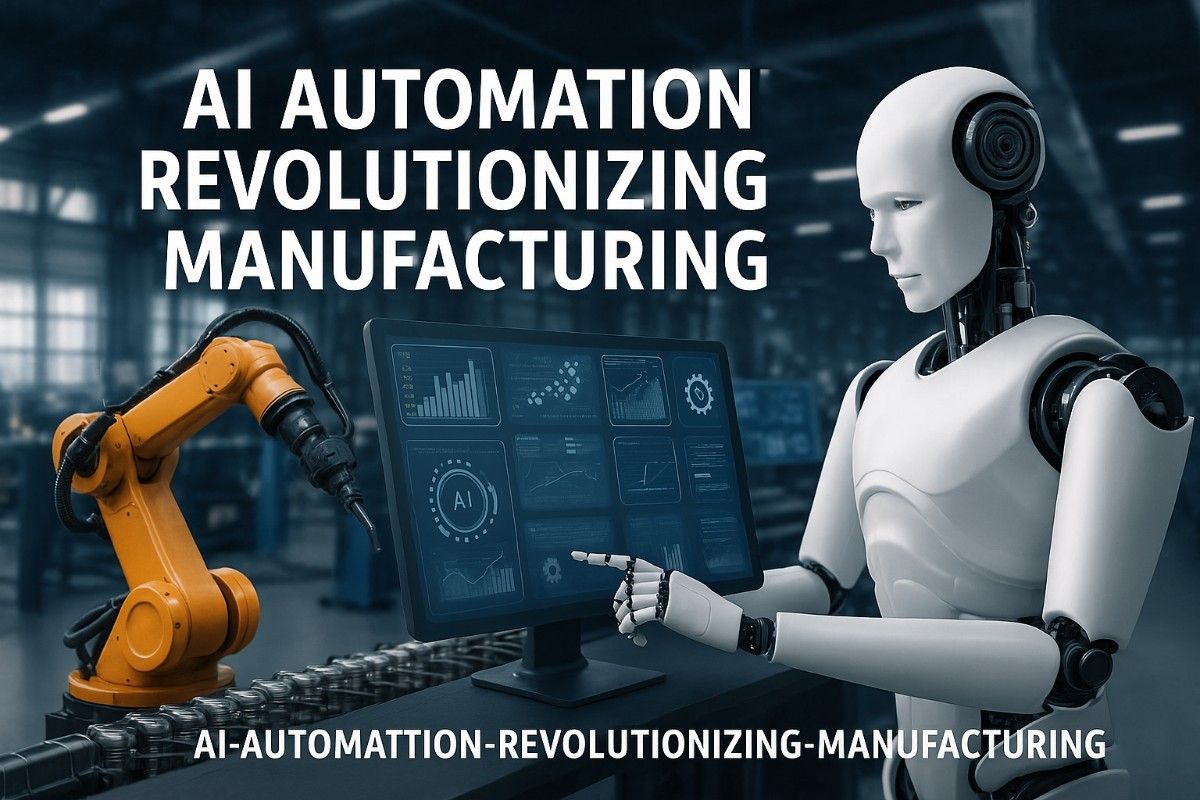Artificial intelligence is revolutionizing manufacturing operations by delivering unprecedented efficiency gains that traditional approaches simply cannot match. Modern manufacturers implementing AI-powered solutions are achieving 35-45% improvements in operational efficiency, 25-30% reductions in production costs, and 40-50% decreases in downtime through intelligent automation, predictive analytics, and real-time optimization capabilities that transform how factories operate in today's competitive industrial landscape.
iFactoryapp enables manufacturers to harness AI technologies through comprehensive Industry 4.0 platforms that integrate seamlessly with existing production systems. Leading manufacturers leveraging AI-driven efficiency solutions are experiencing remarkable results including reduced waste, improved quality consistency, optimized resource utilization, enhanced production throughput, and significant cost savings that strengthen market competitiveness while positioning their operations for sustainable long-term growth.
Global AI in manufacturing market by 2030
Of manufacturers adopting AI technologies
Average efficiency improvement achieved
Reduction in operational costs realized
What is AI-Driven Efficiency?: Intelligent Manufacturing Solutions
AI-driven efficiency represents the application of advanced machine learning algorithms, predictive analytics, and autonomous decision-making systems to optimize every aspect of manufacturing operations. These intelligent technologies analyze vast amounts of operational data from sensors, machines, quality systems, and enterprise platforms to discover hidden patterns, predict outcomes, prevent problems, and continuously improve performance in ways that surpass human capabilities.
Unlike traditional automation that simply follows programmed rules, AI systems learn from experience, adapt to changing conditions, and make complex decisions considering hundreds of variables simultaneously. Modern AI solutions leverage deep learning for pattern recognition in sensor data, reinforcement learning to discover optimal control strategies, computer vision for automated quality inspection, natural language processing for documentation and communication, and predictive modeling to forecast equipment failures, quality issues, and demand patterns enabling proactive optimization.
Predictive Intelligence
Machine learning algorithms analyze historical and real-time data to forecast equipment failures, quality deviations, and process anomalies days or weeks in advance, enabling proactive interventions that prevent costly disruptions and maintain optimal performance.
Autonomous Optimization
AI systems continuously adjust process parameters, production schedules, and resource allocation in real-time, responding to changing conditions faster and more accurately than human operators while maintaining quality and efficiency targets.
Intelligent Automation
Advanced robotics guided by computer vision and machine learning perform complex tasks with consistency and precision, while AI-powered systems coordinate activities across entire production facilities for seamless end-to-end operations.
Core AI Technologies Transforming Manufacturing
Multiple AI technologies work together to create comprehensive efficiency improvements. Machine Learning enables systems to learn from operational data without explicit programming, discovering patterns that predict quality outcomes, equipment failures, and efficiency opportunities. Deep Learning analyzes complex sensor data identifying subtle patterns indicating developing problems or optimization opportunities that traditional analytics miss completely.
Computer Vision provides automated visual inspection with superhuman consistency detecting defects, verifying assembly correctness, and monitoring processes continuously without fatigue. Predictive Maintenance analyzes equipment vibration, temperature, power consumption, and operational patterns forecasting failures with remarkable accuracy enabling scheduled interventions during planned downtime. Digital Twins create virtual replicas of production systems enabling risk-free testing, operator training, and predictive optimization discovering strategies before implementing them in actual operations.
Reinforcement Learning enables AI systems to discover novel optimization strategies through simulated experimentation, often finding solutions humans would never consider. Natural Language Processing automates documentation, facilitates communication between systems and operators, and extracts insights from unstructured data sources including maintenance logs, quality reports, and operator notes. Edge AI processes data directly on manufacturing equipment providing millisecond response times for real-time control and optimization without network latency.
Why It Matters: Addressing Critical Manufacturing Challenges
AI adoption has evolved from competitive advantage to business necessity for manufacturers facing escalating cost pressures, quality demands, and operational complexity that traditional approaches cannot address effectively. Global competition intensifies as manufacturers in lower-cost regions achieve quality parity while technology-advanced producers leverage AI for cost structures that traditional competitors cannot match, creating performance gaps that widen continuously as AI capabilities improve and adoption accelerates.
Labor shortages and skills gaps challenge manufacturers as experienced workers retire while younger talent seeks opportunities in technology sectors rather than traditional manufacturing. AI systems augment remaining workforce enabling fewer operators to manage more complex operations while improving safety, job satisfaction, and productivity. Rising energy and material costs squeeze margins requiring optimization approaches that AI delivers through comprehensive analysis of complex relationships among hundreds of process variables discovering efficiency opportunities manual analysis cannot identify.
Quality consistency requirements intensify as customers demand zero defects while product complexity increases and production volumes require consistency across millions of units. AI-powered quality systems maintain specifications through predictive control preventing defects rather than detecting them after production. Customization demands challenge traditional mass production requiring flexible systems that AI-powered manufacturing delivers through rapid changeovers, adaptive processes, and intelligent coordination.
Supply chain disruptions create inventory challenges, production delays, and customer satisfaction issues that AI addresses through demand forecasting, supplier risk prediction, and adaptive scheduling maintaining operations despite volatility. Environmental regulations and sustainability pressures require emissions reductions, waste minimization, and resource efficiency that AI optimization enables while maintaining profitability. Organizations failing to embrace AI face escalating competitive disadvantages as technology mastery becomes fundamental to manufacturing viability. Schedule a consultation to explore how AI can transform your manufacturing efficiency and competitiveness.
Transform Your Manufacturing Operations with AI Intelligence
Discover how iFactoryapp's comprehensive AI solutions enable manufacturers to achieve breakthrough improvements in efficiency, quality, productivity, and profitability through proven intelligent automation strategies.
Book a Demo Contact SupportBenefits: Achieving Maximum Speed and Cost Savings
AI-driven manufacturing delivers comprehensive benefits spanning operational efficiency, financial performance, quality excellence, and strategic capabilities. Manufacturers implementing AI solutions through platforms like iFactoryapp achieve measurable improvements including 35-45% efficiency gains, 40-50% downtime reductions, 25-30% cost savings, 30-40% quality improvements, and 20-25% throughput increases creating sustainable competitive advantages and market leadership positioning.
Operational Speed and Throughput Optimization
Speed improvements from AI solutions create capacity expansion within existing facilities without capital investment in additional equipment. AI optimization discovers operating parameters maximizing throughput while maintaining quality and efficiency revealing that plants often operated significantly below optimal capacity due to conservative settings, suboptimal parameter combinations, or operators' inability to identify best strategies through manual approaches limited by complexity and competing objectives.
Real-time optimization adjusts process parameters continuously responding to raw material variations, equipment conditions, and production requirements faster and more precisely than human operators maintaining peak performance despite changing conditions. Predictive maintenance prevents unplanned downtime disrupting production and wasting time during extended equipment restart periods. AI-powered scheduling optimizes production sequences, changeovers, and resource allocation maximizing equipment utilization while meeting delivery commitments.
Automated quality inspection eliminates bottlenecks from manual checking enabling inspection of every unit at production speed without slowing throughput. Computer vision systems examine products in milliseconds detecting defects human inspectors would miss while maintaining consistent standards throughout shifts. Coordinated optimization across interdependent processes discovers system-level efficiencies impossible when optimizing individual operations independently. Throughput improvements of 20-25% combined with downtime reductions and quality gains typically deliver dramatic profitability improvements justifying AI investments within 12-18 months.
Cost Reduction and Resource Optimization
Cost savings from AI-driven efficiency strengthen competitiveness in price-sensitive markets where profit margins depend on operational excellence. Energy optimization reduces consumption 30-40% through AI discovering operating parameters minimizing power usage while maintaining production targets translating directly to cost savings particularly important for energy-intensive manufacturing operations where utilities represent significant expense components.
Material waste reduction from quality improvements and process optimization decreases raw material costs while reducing disposal expenses and environmental impacts. Predictive maintenance optimizes spare parts inventory reducing working capital requirements while preventing expensive emergency procurement of components needed for unexpected failures. Labor productivity improvements from AI augmentation enable existing workforce to manage increased production volumes or allow strategic workforce optimization while improving job quality through automation of dangerous or repetitive tasks.
AI-powered demand forecasting improves inventory management reducing carrying costs and obsolescence risks while preventing stockouts disrupting production or disappointing customers. Automated quality inspection reduces labor requirements while improving consistency and coverage. Downtime cost reductions from predictive maintenance prevent lost production revenue, wasted materials, and expensive emergency repairs. Comprehensive cost savings of 25-30% create competitive advantages enabling aggressive pricing, market share gains, or margin expansion depending on strategic priorities and market positioning.
Quality Excellence and Consistency
Quality improvements from AI technologies strengthen customer satisfaction, reduce waste, enable premium positioning, and improve operational efficiency. Manufacturing quality depends on complex relationships among process parameters, material properties, equipment conditions, and environmental factors creating consistency challenges for traditional control approaches. AI systems maintain target specifications with 30-40% reduction in variability through predictive quality control forecasting product characteristics enabling proactive adjustments before deviations occur.
Computer vision inspection detects defects with superhuman consistency examining every unit at production speed catching subtle issues human inspectors miss while eliminating subjective judgments causing inconsistent quality decisions. Real-time process monitoring identifies quality-impacting conditions immediately enabling rapid corrections before significant off-specification material accumulates. Root cause analysis powered by AI discovers quality drivers from vast operational datasets revealing patterns manual analysis cannot identify guiding targeted improvements addressing fundamental issues.
Consistent quality reduces customer complaints, eliminates costly rework or disposal, enables premium pricing for certified consistent products, and simplifies inventory management. For manufacturers serving demanding applications requiring strict specifications, AI quality consistency creates competitive differentiation justifying premium pricing while strengthening brand reputation and customer loyalty driving sustained business growth and market leadership.
Key Benefits of AI-Driven Manufacturing Efficiency:
- 40% Efficiency Gains: AI optimization maximizes resource utilization and throughput
- 45% Downtime Reduction: Predictive maintenance prevents unexpected failures
- 28% Cost Savings: Comprehensive optimization across all operations
- 35% Quality Improvement: Predictive control maintains consistent specifications
- 25% Throughput Increase: Real-time optimization maximizes production capacity
- 50% Faster Changeovers: AI-guided setup reduces transition time
- 30% Energy Reduction: Intelligent systems minimize power consumption
How It Works: AI-Powered Efficiency Processes
Implementing AI-driven efficiency requires systematic approaches integrating multiple technologies, processes, and organizational changes working together to create intelligent, adaptive manufacturing environments. Successful implementations follow proven methodologies managing complexity while delivering incremental value demonstrating benefits and building organizational support for comprehensive transformation.
Establish AI vision aligned with business strategy defining desired capabilities, competitive positioning, and value creation objectives. Conduct comprehensive operational assessment evaluating current processes, existing technology infrastructure, data maturity, and improvement opportunities. Identify high-value AI applications through analysis of operational pain points, efficiency gaps, quality challenges, and strategic priorities. Develop detailed implementation roadmap with phased deployment balancing quick wins demonstrating value with foundational investments enabling long-term capabilities. Define technology selections, investment requirements, expected benefits, success metrics, and governance structures.
Establish data foundation including IoT sensor networks capturing comprehensive operational information from equipment, processes, and quality systems. Implement data collection, storage, and management infrastructure including industrial networks, edge computing devices, cloud platforms, and integration middleware connecting operational technology with information systems. Deploy focused AI pilot programs on highest-ROI applications demonstrating quick wins validating approaches before broader rollout. Typical pilot applications include predictive maintenance for critical equipment or quality prediction for key products achieving measurable benefits within 4-6 months building organizational confidence and justifying additional investment.
Deploy comprehensive AI capabilities across major processes including production optimization, quality control, maintenance management, and supply chain coordination. Implement machine learning models for predictive analytics forecasting equipment failures, quality outcomes, and demand patterns enabling proactive decision-making. Establish computer vision systems for automated inspection and process monitoring. Deploy real-time optimization algorithms continuously adjusting operations maintaining peak performance despite changing conditions. Integrate AI capabilities with existing control systems, quality platforms, and enterprise software creating unified intelligent manufacturing environments.
Deploy advanced AI applications including reinforcement learning discovering novel optimization strategies, digital twins enabling virtual experimentation and training, natural language processing automating documentation and communication, and autonomous systems managing operations with minimal human intervention. Scale successful implementations across additional equipment, processes, and facilities capturing benefits enterprise-wide. Establish continuous improvement processes ensuring AI systems adapt to changing conditions and incorporate new learnings maintaining competitive advantages through technology leadership.
Advance toward autonomous manufacturing where AI systems manage increasingly sophisticated operational decisions with minimal human supervision including production planning, quality management, maintenance scheduling, and resource optimization. Implement continuous learning enabling systems to improve performance through accumulated operational experience. Establish innovation programs exploring emerging AI technologies and applications maintaining competitive advantages through sustained technology leadership creating self-optimizing manufacturing operations continuously improving efficiency and capabilities.
Case Studies: Manufacturing Efficiency Success Stories
Manufacturers globally have achieved remarkable results through AI implementation, demonstrating technology's capacity to deliver substantial competitive advantages. These success stories illustrate how systematic AI deployment creates measurable improvements in efficiency, cost, quality, and strategic value creation while fundamentally strengthening competitive positioning.
Global Electronics Manufacturer: Production Excellence
A leading electronics manufacturer operating 18 facilities worldwide implemented comprehensive AI-driven efficiency solutions using iFactoryapp addressing challenges including complex assembly operations with thousands of components, quality consistency requirements with zero-defect expectations, intense competitive pressure in commodity markets, and need for rapid product transitions supporting shortened innovation cycles and frequent new product introductions.
Improvement in overall equipment effectiveness
Reduction in production costs achieved
Annual operational savings enterprise-wide
Decrease in quality defects realized
Automotive Components Producer: Predictive Operations
A Tier 1 automotive supplier operating 12 manufacturing plants implemented AI-powered predictive maintenance and process optimization addressing frequent unplanned equipment failures disrupting just-in-time delivery commitments, quality consistency challenges from aging equipment and process complexity, high energy costs impacting competitiveness, and need for operational excellence meeting demanding OEM requirements and certification standards.
Reduction in unplanned downtime achieved
Improvement in energy efficiency realized
Decrease in maintenance costs attained
Combined efficiency and reliability savings
Consumer Goods Manufacturer: Smart Factory Transformation
A consumer packaged goods manufacturer operating 15 production facilities implemented comprehensive AI transformation creating smart factory capabilities addressing complex product portfolio with frequent changeovers, demand volatility requiring flexible responsive production, sustainability commitments requiring waste reduction and efficiency improvements, and competitive pressure from private label brands requiring operational excellence and cost leadership. Contact our specialists to discover how AI can deliver similar transformative results for your manufacturing operations.
Improvement in production throughput
Reduction in material waste achieved
Faster changeover times realized
Annual efficiency and sustainability savings
Challenges: Overcoming AI Adoption Barriers
While AI benefits are substantial, manufacturers face implementation challenges requiring systematic approaches and comprehensive mitigation strategies. Understanding common obstacles and proven solutions is essential for managing transformation risks and ensuring successful outcomes delivering expected business value and competitive advantages.
Data Quality and Availability
AI systems require high-quality data for effective training and operation, but many manufacturers lack comprehensive data collection infrastructure or suffer from incomplete, inconsistent, or inaccurate operational data requiring investment in sensors, systems, and data governance processes.
Skills Gaps and Expertise
AI implementation requires capabilities in data science, machine learning, software development, and change management—skills scarce in traditional manufacturing organizations requiring strategic workforce development, external partnerships, and organizational learning initiatives.
Integration Complexity
Connecting AI systems with existing equipment, control systems, enterprise software, and operational workflows presents technical challenges requiring careful architecture design, middleware platforms, and phased implementation approaches managing complexity systematically.
Change Management Resistance
AI adoption requires fundamental changes in decision-making approaches, work processes, and organizational culture encountering resistance from individuals comfortable with traditional methods and concerned about technology replacing human expertise or disrupting established practices.
Investment Justification
Quantifying AI benefits, estimating implementation costs accurately, and building compelling business cases presents challenges particularly for innovative applications without established benchmarks requiring rigorous analysis and external expertise validating assumptions.
Technology Selection
Navigating diverse AI technologies, platforms, and vendors to identify optimal solutions matching specific requirements, existing infrastructure, and organizational capabilities requires careful evaluation, proof-of-concept testing, and strategic partnership considerations.
Strategic Success Approaches
Successful manufacturers address implementation challenges through comprehensive strategies combining technology, financial, organizational, and change management interventions. Phased implementation approaches beginning with focused pilots on highest-ROI applications demonstrate benefits quickly while building organizational capabilities and confidence for broader deployment. Quick wins proving value within 6-9 months overcome skepticism and justify additional investment creating momentum for transformation.
Executive sponsorship and visible leadership commitment signal organizational priority, provide resources, remove obstacles, and sustain momentum through challenges. Cross-functional transformation teams combining AI expertise with operational knowledge ensure solutions address real business needs while remaining technically sound. Partnerships with experienced providers like iFactoryapp accelerate transformation through proven platforms designed for manufacturing, industry expertise understanding unique requirements, implementation support managing complexities, and ongoing optimization ensuring sustained value.
Comprehensive change management programs address human dimensions through transparent communication about transformation vision and benefits, stakeholder involvement in design and implementation, training developing necessary capabilities, and recognition systems rewarding adoption and innovation. Starting with data infrastructure investment establishing foundations for current and future AI applications ensures long-term success. Focus on use cases with clear ROI and measurable benefits builds credibility supporting broader transformation initiatives and organizational commitment to AI-driven manufacturing excellence.
Future: Emerging Manufacturing Efficiency Trends
The future of AI-driven manufacturing promises increasingly sophisticated capabilities as technologies mature and adoption accelerates. Understanding emerging trends enables manufacturers to make strategic technology investments positioning them for sustained competitive success in evolving markets where efficiency, quality, and technology mastery increasingly determine viability and profitability.
Autonomous Manufacturing Operations
Future factories will feature autonomous operations where AI systems manage production with minimal human supervision, continuously optimizing processes, coordinating equipment, maintaining quality, and adapting to changing conditions automatically. Self-optimizing plants will discover novel process improvements through reinforcement learning experimentation in digital twin environments, implementing successful strategies in physical operations. Human operators will focus on strategic oversight, exception handling, and continuous improvement rather than routine control that AI systems handle more effectively. Lights-out manufacturing during off-peak hours or entire facilities operating autonomously will become increasingly common as technology capabilities and organizational confidence advance.
Edge AI and Real-Time Intelligence
AI processing will shift increasingly to edge devices directly on manufacturing equipment enabling millisecond response times for real-time control and optimization without network latency. Edge AI will support autonomous equipment making intelligent decisions independently while coordinating with broader factory systems. 5G connectivity will enable seamless coordination among distributed edge AI systems creating responsive manufacturing networks. The combination of edge intelligence and cloud analytics will deliver both immediate local optimization and strategic insights from enterprise-wide data analysis.
Generative AI and Design Optimization
Generative AI will revolutionize product design and process development by discovering optimal solutions meeting multiple objectives that human designers would never consider. AI will generate innovative product designs optimized for manufacturability, performance, cost, and sustainability simultaneously. Process parameters will be optimized through AI discovering novel operating strategies that balance efficiency, quality, throughput, and resource utilization. Generative design will accelerate innovation cycles while improving product quality and reducing development costs creating competitive advantages through superior products and faster market introduction.
Collaborative AI and Human Augmentation
Future AI systems will work collaboratively with humans combining artificial and human intelligence leveraging respective strengths rather than replacing workers. AI will provide real-time guidance, predictive insights, and decision support augmenting operator capabilities while learning from human expertise. Natural language interfaces will enable intuitive communication between workers and AI systems making advanced capabilities accessible to all personnel regardless of technical background. The partnership between human creativity, judgment, domain expertise and AI's data analysis, prediction, optimization will create manufacturing capabilities exceeding what either achieves independently.
Organizations investing in AI capabilities today establish foundations for capturing future opportunities while building competitive advantages through accumulated operational intelligence and organizational learning that late adopters struggle to replicate.
Emerging Trends in AI-Driven Manufacturing:
- Autonomous Operations: Self-managing factories with minimal human intervention
- Edge AI: Real-time intelligence directly on manufacturing equipment
- Generative Design: AI-created product and process optimizations
- Collaborative Intelligence: Human-AI partnerships augmenting capabilities
- Quantum AI: Breakthrough optimization of complex manufacturing problems
- Swarm Intelligence: Coordinated autonomous equipment networks
- Explainable AI: Transparent decision-making building trust and adoption
- Sustainable Manufacturing: AI-optimized resource efficiency and waste reduction
Conclusion: Lead Manufacturing Through AI Transformation
Manufacturing efficiency boosted by artificial intelligence represents essential evolution for manufacturers seeking to thrive in markets where operational excellence, cost competitiveness, quality consistency, and technology mastery determine competitive success and long-term viability. The comprehensive integration of AI, machine learning, predictive analytics, and intelligent automation creates manufacturing capabilities that fundamentally surpass traditional approaches in productivity, efficiency, quality, and strategic value creation.
Success requires systematic approaches integrating advanced AI technologies with existing operations, developing organizational capabilities to leverage intelligent systems effectively, and maintaining commitment through implementation challenges toward realizing substantial long-term benefits. Manufacturers who embrace AI strategically while building necessary infrastructure, skills, and processes position themselves as industry leaders capable of meeting demanding customer requirements, competitive pressures, and market dynamics increasingly separating winners from losers in global manufacturing.
Partnering with experienced providers like iFactoryapp accelerates AI transformation through proven platforms specifically designed for manufacturing, industry expertise understanding unique operational requirements, comprehensive implementation support managing technical complexities, and ongoing optimization ensuring sustained value realization. The combination of cutting-edge AI technology, domain knowledge, and dedicated partnership creates foundation for transformation success and competitive leadership in the digital age.
Start your free trial with iFactoryapp! Experience firsthand how leading manufacturers worldwide are implementing AI technologies to achieve breakthrough improvements in efficiency, quality, productivity, and profitability. Our manufacturing specialists will collaborate with you to assess transformation opportunities, develop customized AI strategies, and guide implementation ensuring you realize full potential of intelligent, efficient manufacturing. Begin your AI journey today and establish your organization as technology leader driving the future of manufacturing excellence!
Frequently Asked Questions
What distinguishes AI-driven efficiency from traditional automation in manufacturing?
AI-driven efficiency differs fundamentally from traditional automation through intelligent learning, adaptive optimization, and autonomous decision-making capabilities creating self-improving manufacturing systems. Traditional automation executes programmed rules without learning or adaptation requiring manual reprogramming for process changes or optimization improvements. AI systems learn from operational data continuously improving performance, adapt to changing conditions automatically without manual intervention, make complex decisions considering hundreds of variables simultaneously, predict future outcomes enabling proactive optimization, and discover novel strategies through experimentation that humans would never identify. AI delivers order-of-magnitude performance improvements—35-45% efficiency gains, 40-50% downtime reductions, 25-30% cost savings—versus incremental enhancements from basic automation. The intelligence enables capabilities fundamentally unachievable through traditional approaches including predictive maintenance forecasting failures weeks in advance, real-time quality prediction preventing defects before production, autonomous optimization responding faster than human operators, and continuous self-improvement discovering efficiency opportunities progressively. Most importantly, AI transforms manufacturing from reactive firefighting addressing problems after occurrence to proactive optimization preventing issues while continuously improving operations creating sustainable competitive advantages through accumulated operational intelligence that competitors struggle to replicate.
How long does AI implementation take and what are typical investment requirements?
AI implementation timelines and investments vary based on plant complexity, existing infrastructure, transformation scope, and organizational readiness. Focused pilot programs addressing specific applications like predictive maintenance for critical equipment can deliver results within 4-6 months with investments of $150,000-$500,000, demonstrating benefits and building confidence. Comprehensive single-facility transformation typically requires 12-18 months and $2-6 million investment including data infrastructure and sensors, AI platforms and software, system integration services, pilot programs and validation, training and change management, and cybersecurity implementation. Multi-facility enterprise-wide transformation may span 2-4 years with investments of $15-50 million depending on facility count, geographic distribution, and technology maturity. However, phased approaches enable continuous value realization throughout implementation with early pilots often achieving positive ROI within 12-15 months from efficiency improvements and downtime reductions alone, funding subsequent phases. Most manufacturers achieve 3-5x return on AI investment within three years through efficiency gains, quality improvements, downtime reductions, and cost savings. Platforms like iFactoryapp reduce implementation time and costs through proven manufacturing-specific solutions, pre-built integrations, configurable capabilities, and experienced implementation support accelerating deployment versus custom development approaches requiring extensive design, testing, and refinement consuming additional time and resources. Starting with focused pilots on highest-ROI applications demonstrates value quickly while establishing foundations for broader transformation creating sustainable competitive advantages through technology leadership.
What skills and organizational changes are required for successful AI adoption?
Successful AI adoption requires both technical capabilities and organizational transformation addressing people, processes, and culture alongside technology implementation. Essential technical skills include data science for developing predictive models and analytics, machine learning expertise for AI system development and training, software development for integration and deployment, IoT and sensor technologies for data infrastructure, and cybersecurity for protecting connected systems. However, complete internal expertise is not required as partnerships with providers like iFactoryapp access specialized skills through managed services and ongoing support. Organizational capabilities include change management for guiding workforce through transformation, cross-functional collaboration combining operational knowledge with technical expertise, continuous improvement mindset embracing experimentation and learning, and strategic thinking aligning technology with business objectives. Workforce evolution shifts operators from manual control to supervisory roles overseeing AI systems and handling exceptions, maintenance teams focus on strategic predictive interventions rather than reactive repairs, engineers develop AI models and optimize system performance, and managers guide transformation while measuring results. Organizations address skill gaps through targeted training developing existing workforce capabilities, strategic hiring bringing specialized expertise for critical roles, partnerships accessing external skills and proven solutions, and collaboration with educational institutions creating talent pipelines. Cultural transformation requires executive sponsorship signaling commitment and sustaining momentum, transparent communication about vision and benefits, stakeholder involvement in design decisions, recognition rewarding adoption and innovation, and tolerance for experimentation accepting that learning involves iteration. Rather than workforce reduction, most manufacturers experience workforce upgrading toward higher-skill positions improving engagement, safety, and satisfaction while strengthening competitiveness through human-AI collaboration leveraging respective strengths creating capabilities neither achieves independently.
How can manufacturers ensure ROI from AI investments?
Ensuring AI ROI requires strategic planning, disciplined implementation, and continuous optimization focused on business value rather than technology for its own sake. Start with comprehensive assessment identifying high-value opportunities through analysis of operational pain points, efficiency gaps, quality challenges, and strategic priorities ensuring AI applications address critical business needs with measurable impacts. Focus initial implementations on applications with clear ROI and rapid payback—typically predictive maintenance, quality prediction, or energy optimization—demonstrating benefits within 6-12 months building confidence and justifying broader investment. Establish baseline performance metrics before implementation enabling accurate measurement of improvements and ROI quantification. Define specific success criteria aligned with strategic objectives ensuring transformation delivers intended business outcomes beyond technical achievements. Implement robust governance tracking costs, benefits, and progress against targets enabling course corrections and resource optimization. Partner with experienced providers like iFactoryapp accessing proven platforms reducing implementation risks, accelerating deployment, and improving outcomes through industry expertise and best practices. Start with pilot programs validating approaches and demonstrating value before large-scale investment reducing risks while building organizational capabilities and confidence. Establish comprehensive benefits realization processes ensuring AI capabilities are actually used effectively, improvements are sustained, and value is captured rather than dissipated through organizational inertia or competing priorities. Monitor performance continuously identifying optimization opportunities and system improvements maintaining competitive advantages through ongoing enhancement rather than treating AI as one-time project. Most importantly, maintain executive commitment and adequate resources throughout transformation journey as benefits typically require 12-24 months to fully realize while early challenges may tempt premature abandonment before substantial value materializes.
What is the future direction of AI in manufacturing efficiency?
Future AI evolution in manufacturing will feature increasingly autonomous operations requiring minimal human supervision, edge AI providing real-time intelligence directly on equipment, generative AI discovering innovative product and process designs, collaborative intelligence combining human and artificial capabilities, quantum computing enabling breakthrough optimization of complex problems, swarm intelligence coordinating autonomous equipment networks, explainable AI building trust through transparent decision-making, and sustainability optimization minimizing environmental impacts. Manufacturers should prepare by establishing AI as strategic priority with executive sponsorship and long-term commitment, building foundational data infrastructure supporting current and future applications, starting implementation with focused pilots delivering quick wins while developing capabilities, creating partnerships with AI providers accessing expertise and proven solutions, monitoring emerging technologies through industry collaboration and innovation programs, investing in workforce development emphasizing digital skills and adaptability, and maintaining strategic flexibility adapting transformation roadmaps as technologies mature. Organizations treating AI as continuous evolution journey rather than one-time project position themselves to capitalize on emerging capabilities while building competitive advantages through accumulated operational intelligence and organizational learning. Starting transformation today establishes foundations for future capabilities while delivering immediate benefits justifying investments and accelerating subsequent transformation phases. The convergence of AI technologies will create manufacturing capabilities fundamentally different from today's operations with autonomous systems discovering optimizations humans cannot imagine, sustainability performance meeting aggressive environmental targets, customization flexibility serving diverse customer needs, and resilience adapting seamlessly to disruptions positioning technology leaders for sustained success in increasingly demanding markets where AI mastery determines winners from losers in global manufacturing competition.
Revolutionize Your Manufacturing with AI Intelligence
Join leading manufacturers worldwide leveraging iFactoryapp to implement comprehensive AI solutions that deliver measurable improvements in efficiency, quality, productivity, and profitability through proven intelligent automation strategies.
Book a Demo Contact Support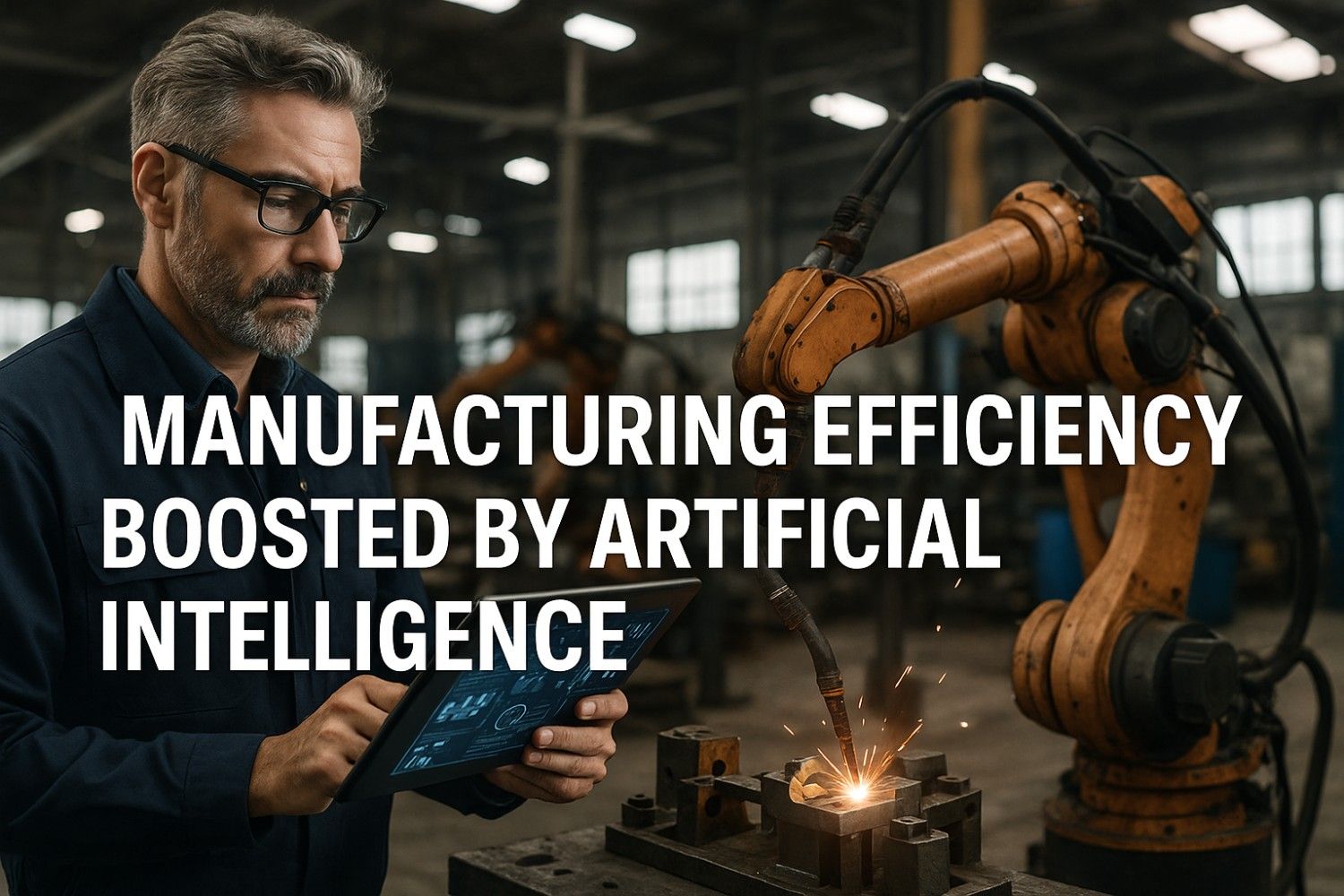
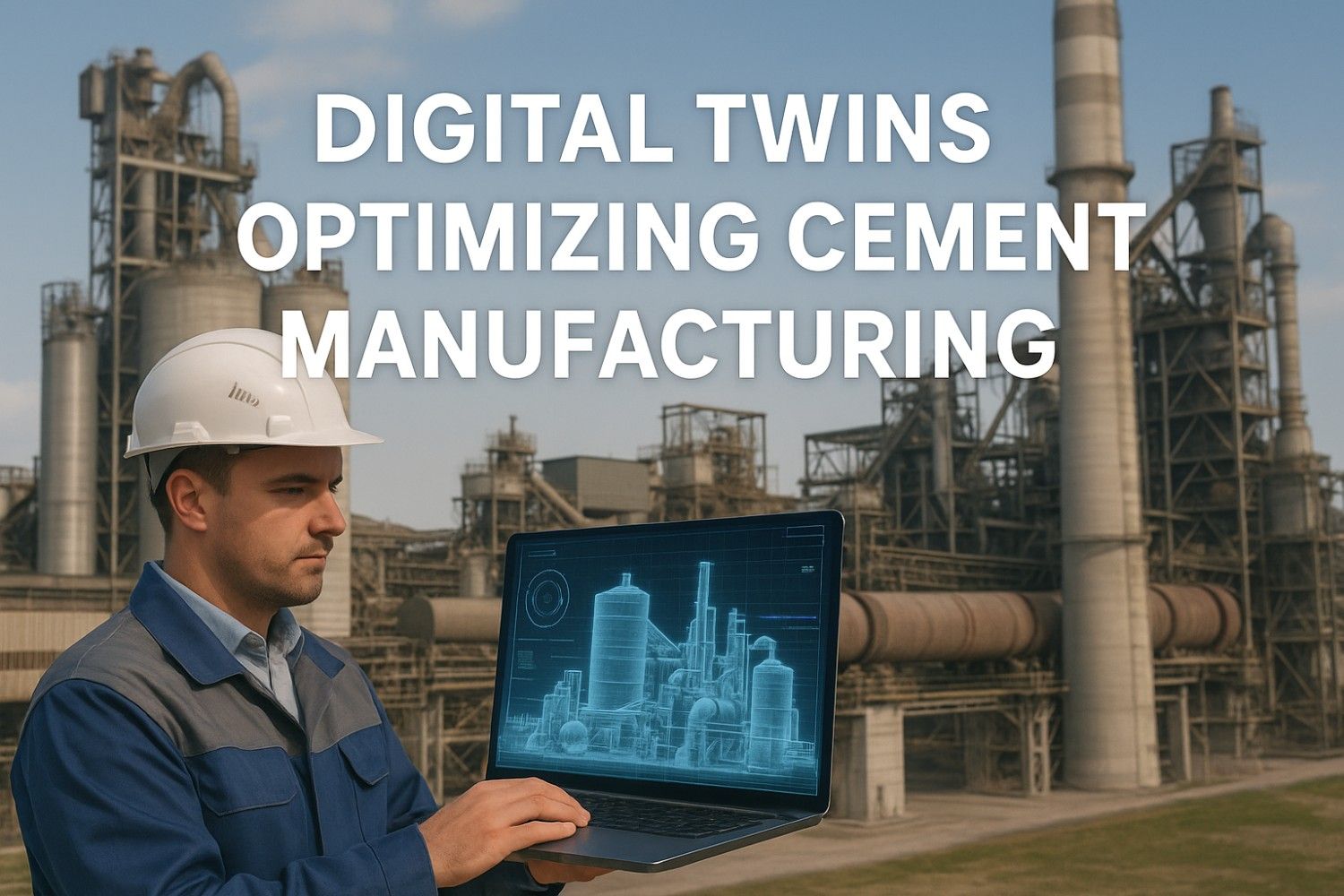
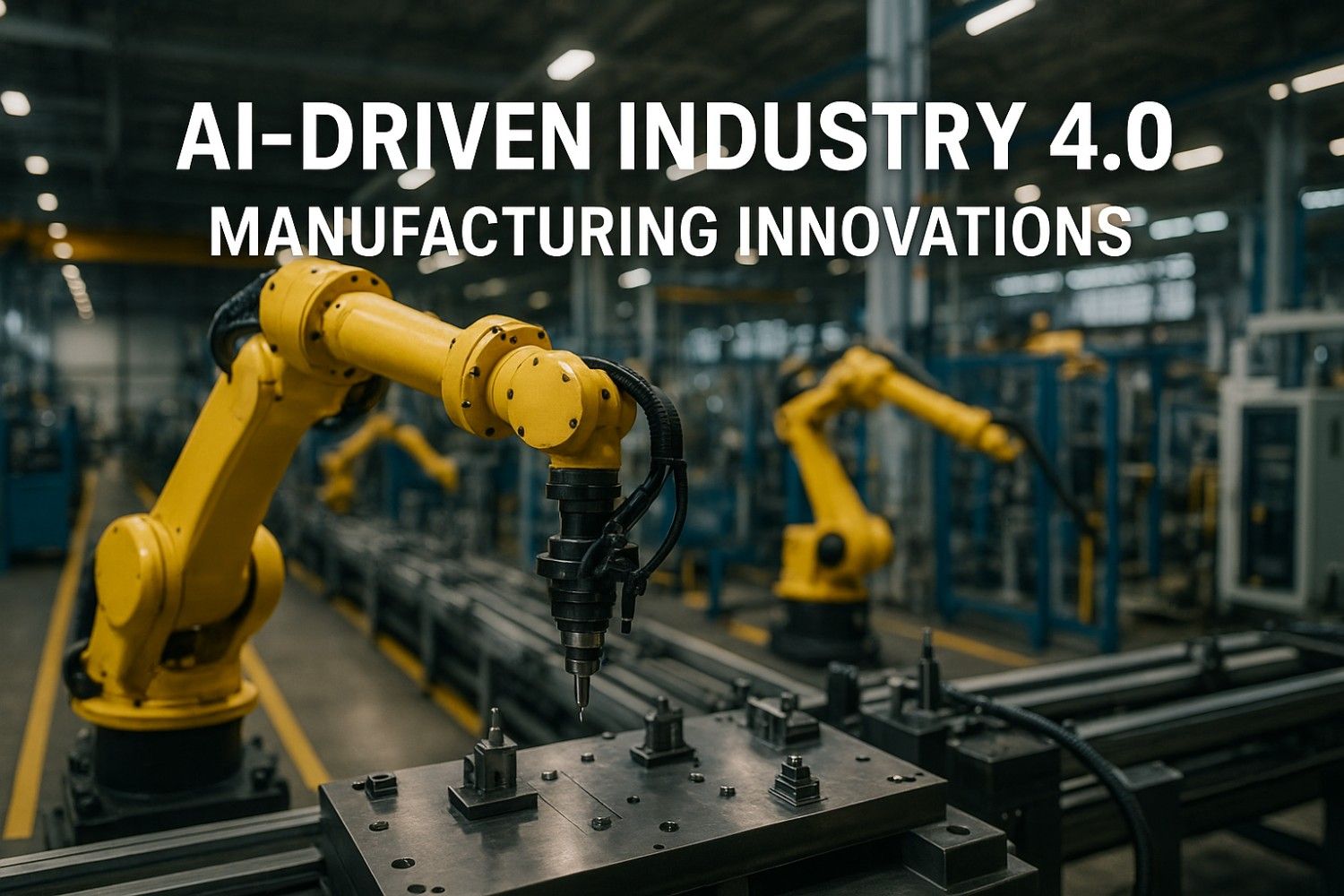
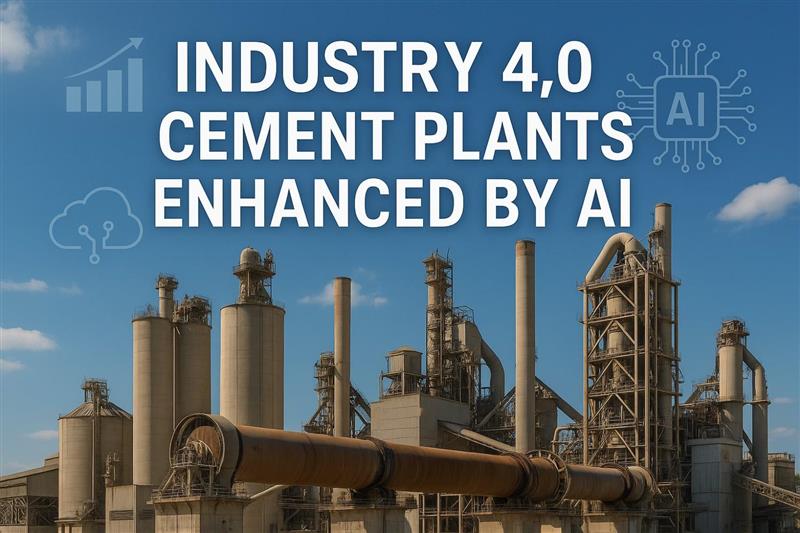
.jpeg)
.jpeg)
